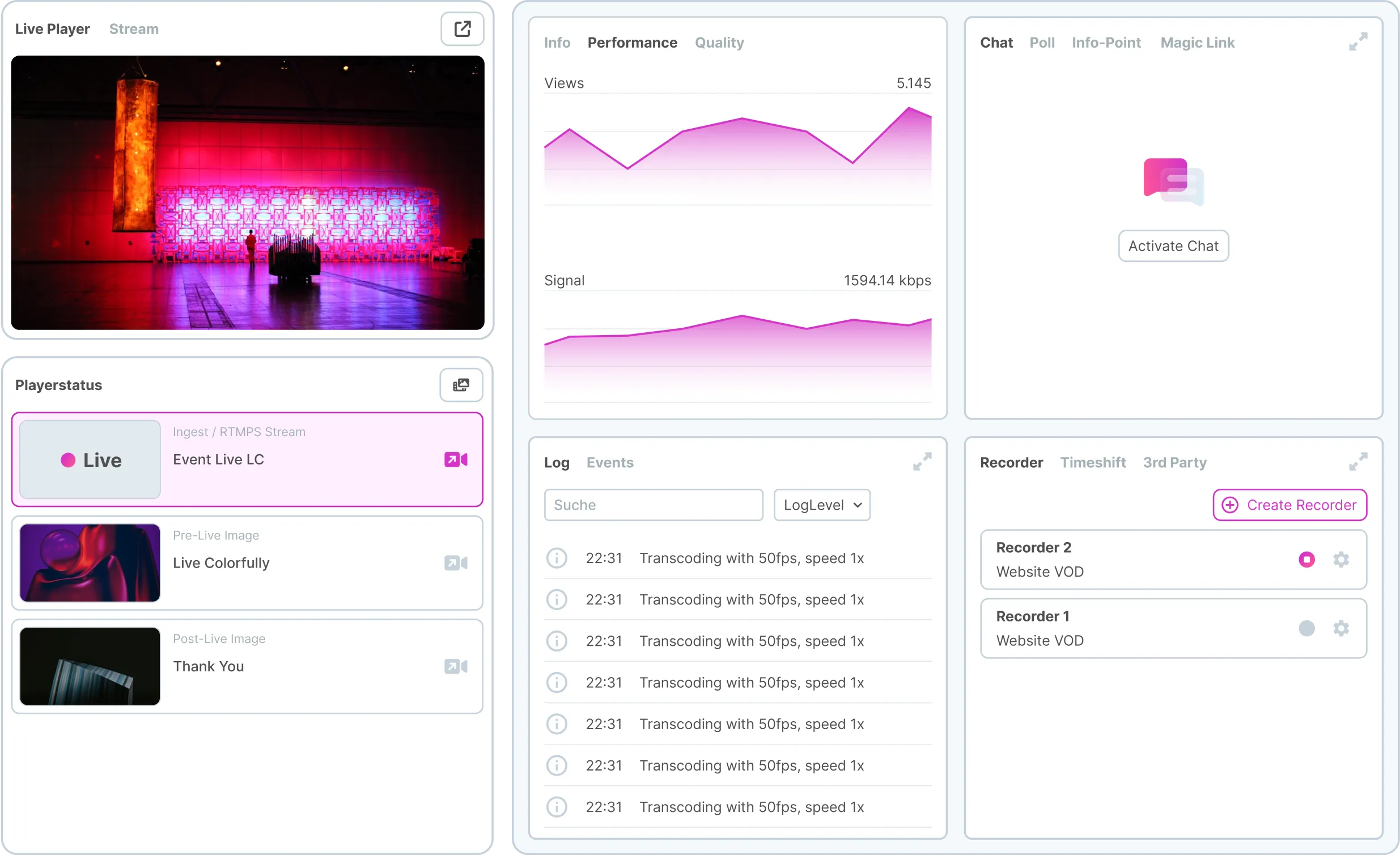Seamless setup


Keep control of your content
Secure and reliable
Our streaming infrastructure runs on our own hardware, located entirely within the EU – so you can focus on your content while trusting in our CDN's reliable security and performance.

Most frequently asked questions
The delay time for live streaming depends on your chosen setting. In low latency mode, the delay is typically 3 to 5 seconds. If you select the standard setting, the delay is between 12 and 17 seconds. Using the Secure Reliable Transport (SRT) protocol can reduce latency by an additional 2 to 3 seconds, allowing even faster transfer.
We support adaptive streaming using HLS (HTTP Live Streaming) and DASH (Dynamic Adaptive Streaming over HTTP), along with current codecs and CMAF (Common Media Application Format). This ensures optimal transmission quality and broad compatibility, allowing stream quality to adjust efficiently and flexibly to the viewer’s device and available bandwidth.
We offer several options to integrate our player on your website or portal. You can simply embed the player using JavaScript or iFrame code. Alternatively, our webcast module lets you create a fully customized landing page in your company’s corporate design, complete with your live stream and other interactive features like chat and live polling.
Our infrastructure is specifically designed to reliably handle high peaks of simultaneous viewers. Thanks to our distributed content delivery network (CDN), we can efficiently manage large audiences. In addition, our AnyCast network automatically connects users to the nearest Point of Presence (PoP), ensuring optimal stream quality even during peak viewer traffic.
If any technical difficulties arise during your live stream broadcast, our experienced support team will be there for you immediately. Thanks to our many years of experience in the field of live streaming, we understand that every second counts at live events. Our team works quickly and efficiently to find solutions and restore the transfer as quickly as possible. We are also happy to offer comprehensive advice in advance to ensure the optimal setup for your specific needs.
We have implemented extensive security measures to ensure the security of your live streams, particularly when sensitive information is being transmitted. All user data is encrypted for transmission by default. In addition, the transmitted stream segments are secured with URL signing to prevent unauthorized access or distribution. Our player also comes with extra security measures, including domain protection, GEO and IP blocking, single sign-on (SSO), and token-based authentication.
.svg)















